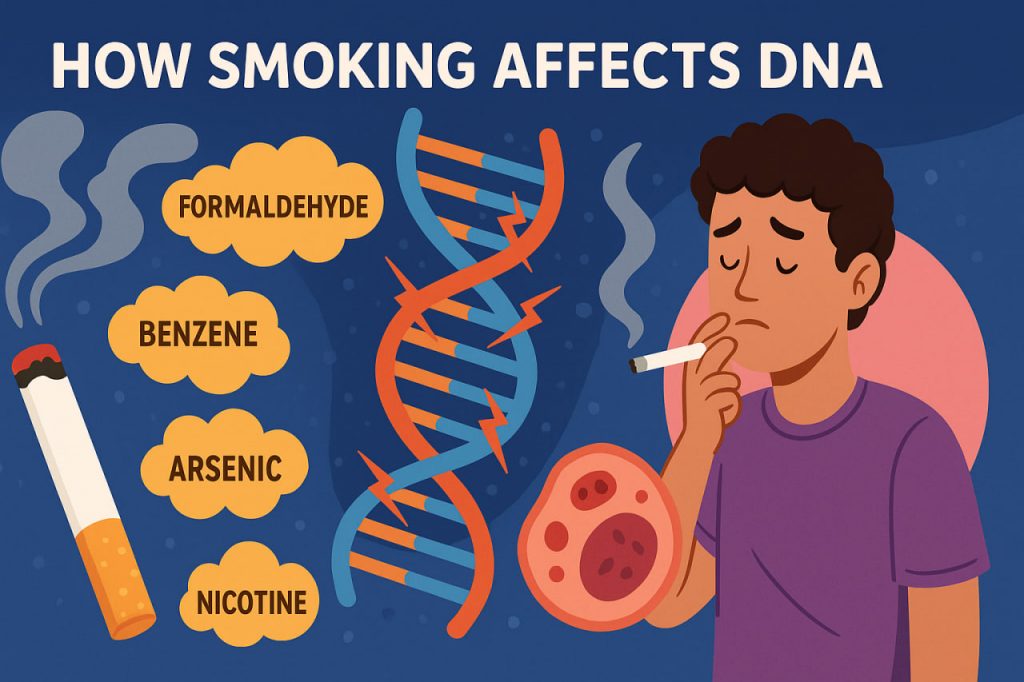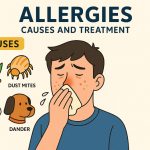Smoking is a well-known cause of numerous health problems, including cancer, heart disease, and lung damage. One of the less visible but highly damaging effects of smoking is its impact on DNA—the molecular blueprint of life that controls how cells function, repair, and replicate. Damage to DNA caused by smoking can lead to genetic mutations and increase the risk of serious diseases.
What Is DNA and Why Is It Important?
DNA (deoxyribonucleic acid) contains the instructions your cells use to build proteins and maintain your body’s systems. It’s arranged in long strands called chromosomes and carries genes that determine everything from your eye color to your risk of developing certain illnesses.
When DNA is damaged or changed, it can disrupt normal cell behavior, leading to errors in cell growth, replication, and function.
How Smoking Damages DNA
Cigarette smoke contains over 7,000 chemicals, including:
- Formaldehyde
- Benzene
- Arsenic
- Polycyclic aromatic hydrocarbons (PAHs)
- Nitrosamines
- Free radicals
Many of these are classified as carcinogens, substances known to cause cancer. They can directly bind to DNA, causing mutations, or produce oxidative stress that damages DNA strands.
This DNA damage can:
- Disrupt normal cell repair
- Lead to the formation of cancer-causing mutations
- Activate harmful genes or deactivate protective ones
- Be passed on during cell division, compounding the damage over time
Some of these changes may remain even after a person quits smoking, though quitting can reduce further damage and improve the body’s repair capacity.
Long-Term Effects of DNA Damage
DNA mutations caused by smoking are linked to several diseases, including:
- Lung cancer
- Throat and mouth cancers
- Bladder, kidney, and pancreatic cancers
- Accelerated aging
- Reduced fertility
- Increased risk of chronic diseases
Some genetic changes can also affect the function of mitochondria (cellular energy producers) and telomeres (DNA caps that shorten with aging), contributing to cell instability and early cell death.
Can DNA Recover?
While the body has repair mechanisms to fix DNA damage, repeated exposure to tobacco toxins overwhelms these systems. Quitting smoking allows some DNA repair to occur and reduces the risk of further genetic damage.
If you’re concerned about your health or genetic risk, consult a licensed healthcare provider or genetic counselor.
Glossary
- DNA – The molecule that carries genetic information in living organisms
- Mutation – A permanent change in the DNA sequence
- Carcinogen – A substance that can cause cancer
- Free radicals – Unstable molecules that damage cells, including DNA
- Telomeres – Protective ends of chromosomes that shorten with age


